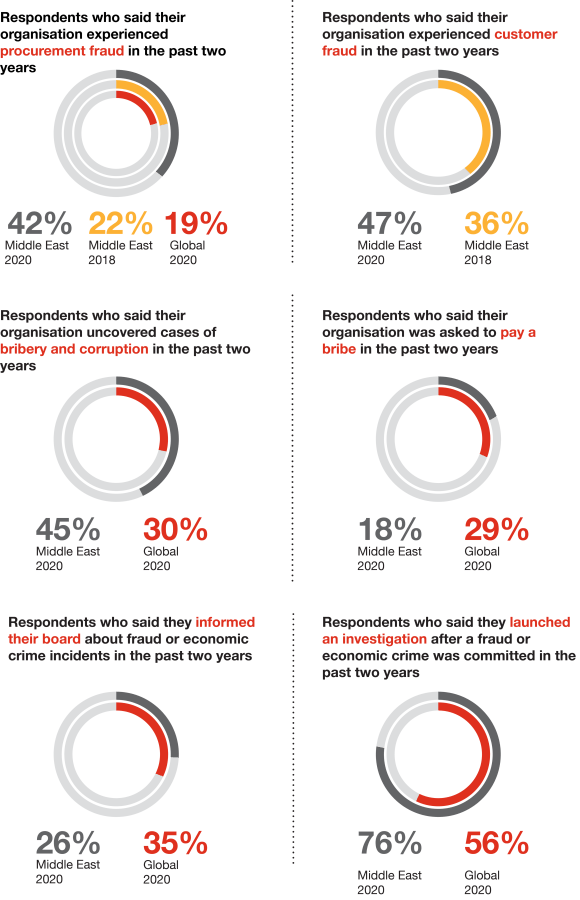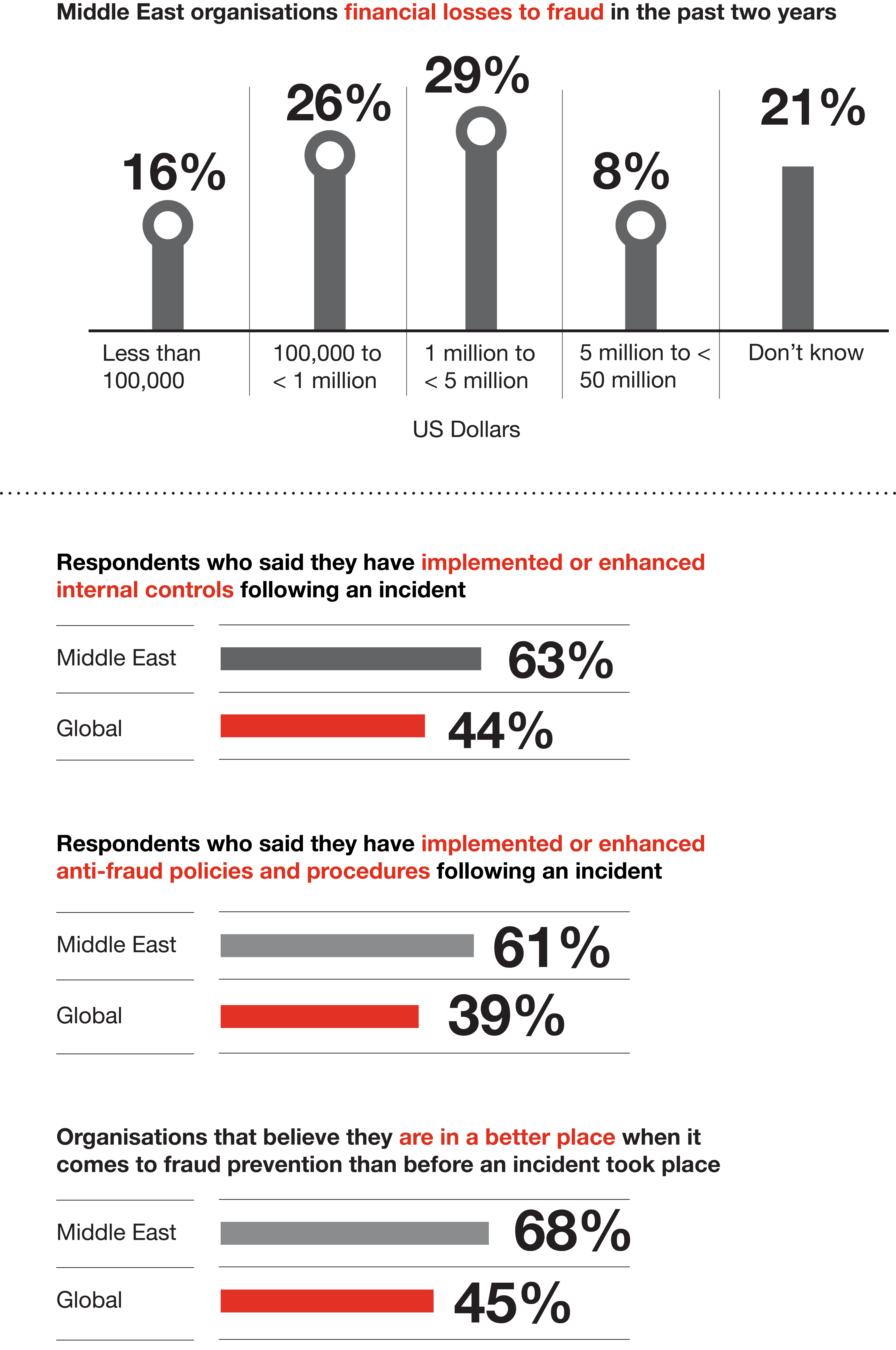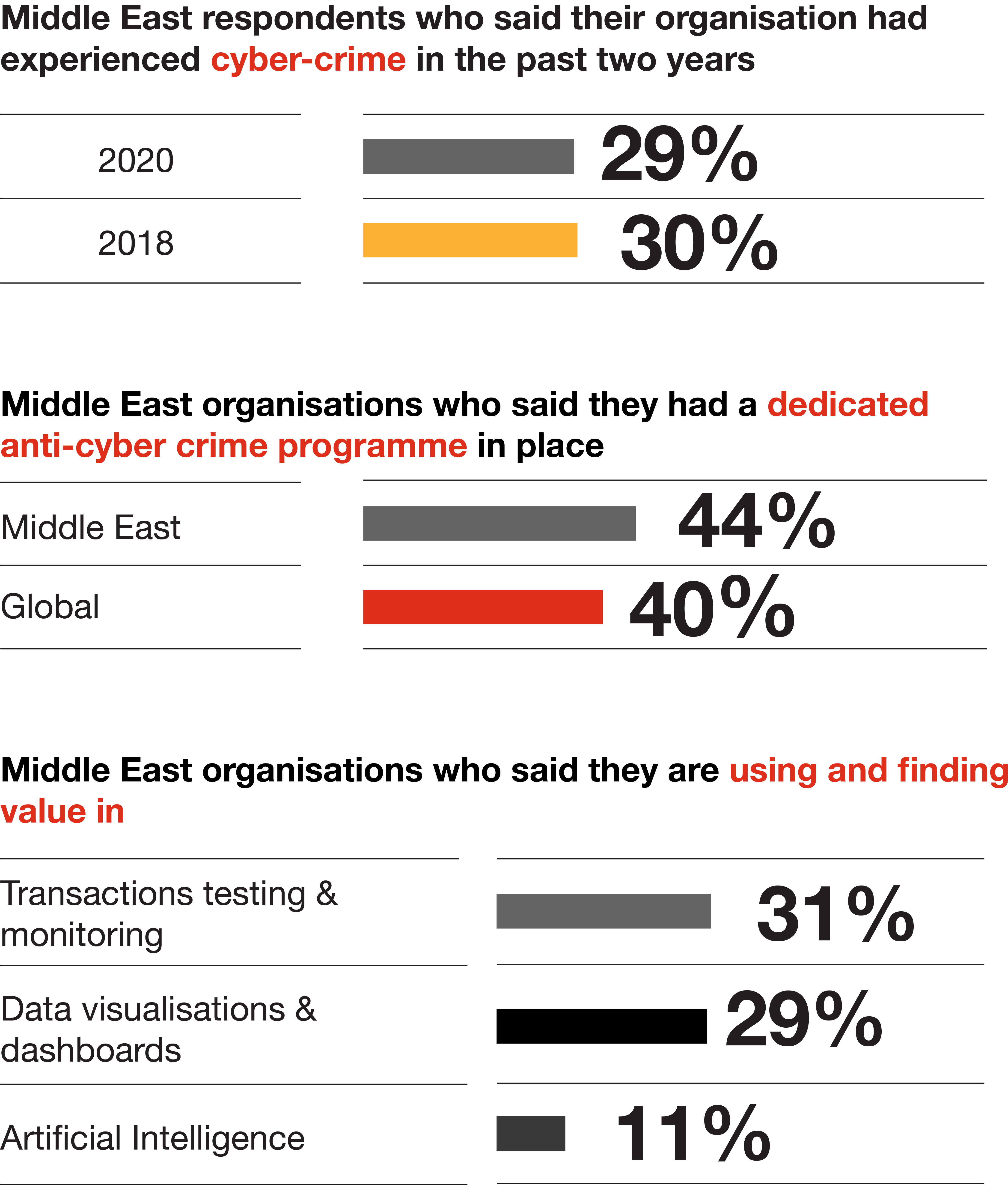Fraud and economic crime in the Middle East is taking increasingly diverse forms, in line with the global trend. Identifying the different kinds of threats is the first step to understanding an organisation’s particular vulnerabilities and ensuring that it has adequate anti-fraud defences.
In the region, traditional fraud types continue to feature prominently, compared with the global survey average. Procurement fraud, which may include the practice of favouring known associates with vendor and supplier contracts, remains a significant and growing problem. In 2018, 22% of Middle East respondents said their organisation had suffered procurement fraud. This year, the proportion has risen to 42%, more than double the global survey average of 19%.
Customer fraud is also a growing problem for Middle East organisations, with 47% of respondents reporting an incident during the past two years, up from 36% in 2018. Meanwhile, bribery and corruption remain familiar challenges across the region, although the results do not present an entirely consistent picture. On the one hand, 18% of respondents said their organisation has been asked to pay a bribe, lower than the global average of 29%. On the other hand, 45% of respondents in the region said they uncovered cases of bribery and corruption in the past two years, 15% higher than the worldwide proportion.
Too many businesses in the region are also challenged to meet compliance obligations by reporting known cases of fraud to corporate boards. Only 26% of the Middle East respondents said they informed their board about incidents of fraud or other economic crimes in the last two years, a significantly lower proportion than the global average of 35%. This was despite 76% of Middle East respondents who said they launched an investigation after a fraud or economic crime had been committed, compared with 56% globally.
















